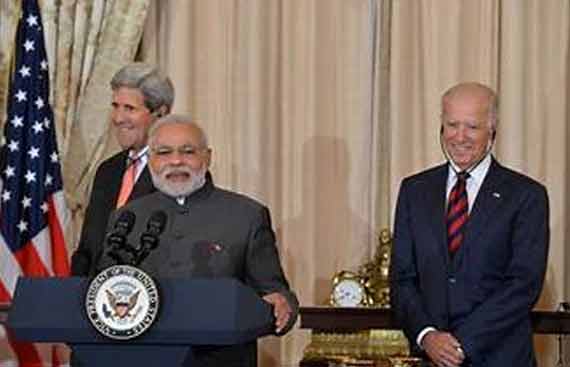Advancing India-US Defense Technology and Industrial Cooperation

India-US defense cooperation advances from planning to action, requiring shared commitment for tangible results amidst global challenges and upcoming elections, pivotal for bilateral defense collaboration.
Over the past two decades, the relationship between India and the United States has seen remarkable advancements in defense and security cooperation, contributing significantly to a global strategic partnership. Despite occasional differences, both sides have demonstrated maturity in handling them. During Indian Prime Minister Narendra Modi's state visit to the US in June 2023, enhanced defense technology and industrial collaboration were emphasized. The partnership encompasses three key areas: regional and global security and development affairs, increased armed forces engagement, and cooperation in defense technology and industry.
Defence Technology Cooperation
In recent years, significant efforts have been undertaken to strengthen defense technology cooperation between India and the United States. Establishing the US-India Defense Technology and Trade Initiative (DTTI) was pivotal in this direction. However, progress has been hindered by various challenges, including the absence of suitable frameworks and delays in foundational agreements.
While both nations have expressed interest in co-development leading to co-production, disparities in sharing this vision pose additional challenges. Despite these complexities, the broader geopolitical, economic, and technological benefits for India and the US are substantial.
Addressing commercial and regulatory challenges swiftly is imperative to capitalize on these opportunities. Additionally, concerted efforts should be made to initiate joint defense research and development projects within the next two years. By doing so, both countries can maximize the potential gains of their collaborative endeavors.
Cooperation in Defence Innovation
The India-US Defence Acceleration Ecosystem (INDUS-X) was inaugurated to coordinate defense innovation efforts between India's Innovation for Defence Excellence and the US Defence Innovation Unit. This collaborative platform facilitates the exchange of ideas, expertise, and resources to drive advancements in defense technology.
As part of its operational framework, INDUS-X has established a distinguished senior advisory group, initiated joint innovation challenges, facilitated investor-start-up meetings, and organized workshops. These activities foster collaboration and knowledge-sharing among stakeholders from both countries.
Central to the success of INDUS-X is the implementation of its protégé-mentor concept. This approach facilitates the seamless integration of innovative solutions into larger defense platforms and systems, ensuring their effectiveness and viability in real-world scenarios.
Defense Industrial Cooperation
The US-India Defence Industrial Cooperation roadmap, signed in June 2023, aims to foster business-to-business interactions and facilitate the integration of the Indian defense industry into global supply chains. It centers around two key projects: the Memorandum of Understanding between GE and HAL for the co-production of GE-414 aero-engines and the procurement of 31 MQ9B drones. Collaborations between private Indian defense and aerospace companies and their US counterparts are underway, focusing on component design, manufacturing, and system integration. While the roadmap provides short-term guidance, there is a recognized need for further program and project initiation.
Significant time and effort have been dedicated to advancing the objectives of India-US defense technology and industrial cooperation. While periodic reviews, including those conducted during the 2+2 Dialogue, are valuable, there is a pressing need for clear articulation of deliverables and a shared commitment to their fulfillment. Despite occasional divergences and the dynamic landscape of global challenges, existing and emerging defense partnerships underscore the importance of maintaining momentum in this critical area of bilateral cooperation.
The following two to three years will be pivotal in transitioning from conceptual frameworks to tangible outcomes. The focus must shift towards execution and the fulfillment of promises made. The forthcoming elections in both nations should not impede progress; instead, they should serve as an opportunity to reaffirm and strengthen our shared commitment to advancing defense cooperation.
